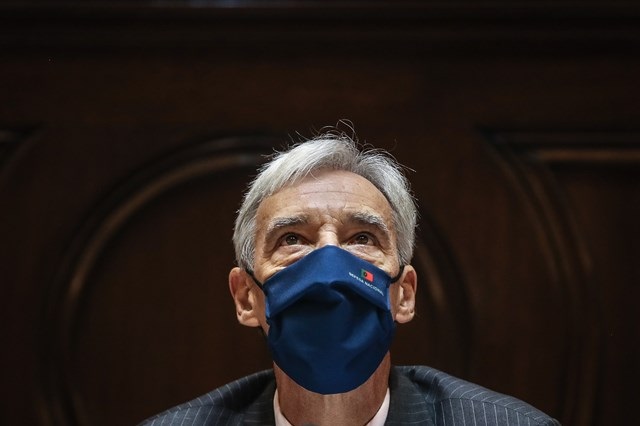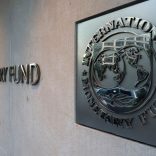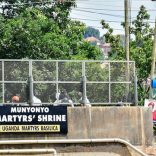IMF says Nigeria repays $3.4 billion COVID-19 funding
EU security, defence missions in Africa do not translate into ‘real political influence’ – minister

File photo: Lusa
Portugal’s defence minister, João Gomes Cravinho, argued on Thursday that the financial efforts and missions of the EU’s Common Security and Defence Policy (CSDP) in Africa do not translate into “real political influence”.
“There is a lack of political commitment, a lack of translation of the financial effort and capabilities that we invest in the African continent, particularly in CSDP missions, into real political influence and a real capacity for dialogue with African political actors who ultimately decide on security and peace on the continent”, stressed Mr Cravinho during a hearing in the European Parliament’s Subcommittee on Security and Defence (EP).
He said the EU should not only speak “about Africa”, but also “with Africa”, and identified the “strengthening of strategic dialogue in EU-Africa security and defence relations” as one of the priorities of the Portuguese chairmanship of the Council of the EU, as he believed that “support for the consolidation of peace and security in Africa” was one of the “most important elements” for the “consolidation of a European security and defence identity”.
In this context, he said he would invite “ministers and representatives” of the African Union (AU), the Southern African Development Community (SADC), the Economic Community of Central African States (CEEAC), the Economic Community of West African States (ECOWAS), the Intergovernmental Authority on Development (IGAD) and the United Nations to the informal Council of Defence Ministers on 2 and 3 March, which he hopes will be held in Lisbon.
“Our understanding is that political dialogue with African regional organisations with security and defence mandates will not only increase the effectiveness of EU missions in Africa – by designing more appropriate mandates and developing a more integrated approach – but will also translate the operational competence of these missions into EU political intervention capacity,” he said.
Among the areas identified for cooperation between the EU and Africa, he referred to “maritime security”, as he believed that there was still “a deficit in European thinking on maritime matters”.
“Given that a very considerable share of foreign and intra-European trade depends on free movement by sea, bearing in mind that, according to the International Maritime Organisation, the Gulf of Guinea accounts for over 90% of all piracy attacks on an international scale and that the Atlantic is now an area of growing geopolitical competition, the construction of a European defence identity must include a maritime dimension”, he stressed.
The minister thus highlighted the Gulf of Guinea area as one of the main areas where European maritime security could be exercised, following the approval on Monday at the EU Foreign Affairs Council of a pilot project entitled ‘Coordinated Maritime Presences’ aimed at harmonising the missions of European naval forces in the region.
“Portugal, like other member states, maintains a regular naval presence in the Gulf of Guinea region, either through bilateral cooperation with Sao Tome and Principe, where we have a naval environment at all times, or through the Open Sea mission and the naval exercises and capacity building initiatives developed in this field,” he said.
Pointing out that “European companies and European traders” are “directly affected” by the crimes that take place in this region – ranging from piracy to arms smuggling and drug trafficking, which then “fuel the financing of terrorist activities in the Sahel region”, Gomes Cravinho also pointed out that, given the “lack of capacity of coastal states in the Gulf of Guinea to guarantee the security of these waters”, this is an issue that constitutes “an immediate threat to European security interests”.
“Therefore, I would say that we should be interested in the development of the pilot project ‘Coordinated Maritime Presences’ and we should be concerned about the set of illegal activities taking place in the Gulf of Guinea, from illegal fishing to smuggling of various kinds, to piracy,” he said.
Gomes Cravinho also said that the experience in the region would “certainly be useful” in raising awareness among African partners of the “added value of the EU’s maritime and coordinated presences,” but also in contributing to “the Union’s increased visibility as a maritime safety actor in the Atlantic.
“After this pilot case in the Gulf of Guinea, we will be in a position to reproduce the model or to adapt it to experience, creating the conditions for the EU to gain strategic maritime relevance,” he said.













Leave a Reply
Be the First to Comment!
You must be logged in to post a comment.
You must be logged in to post a comment.